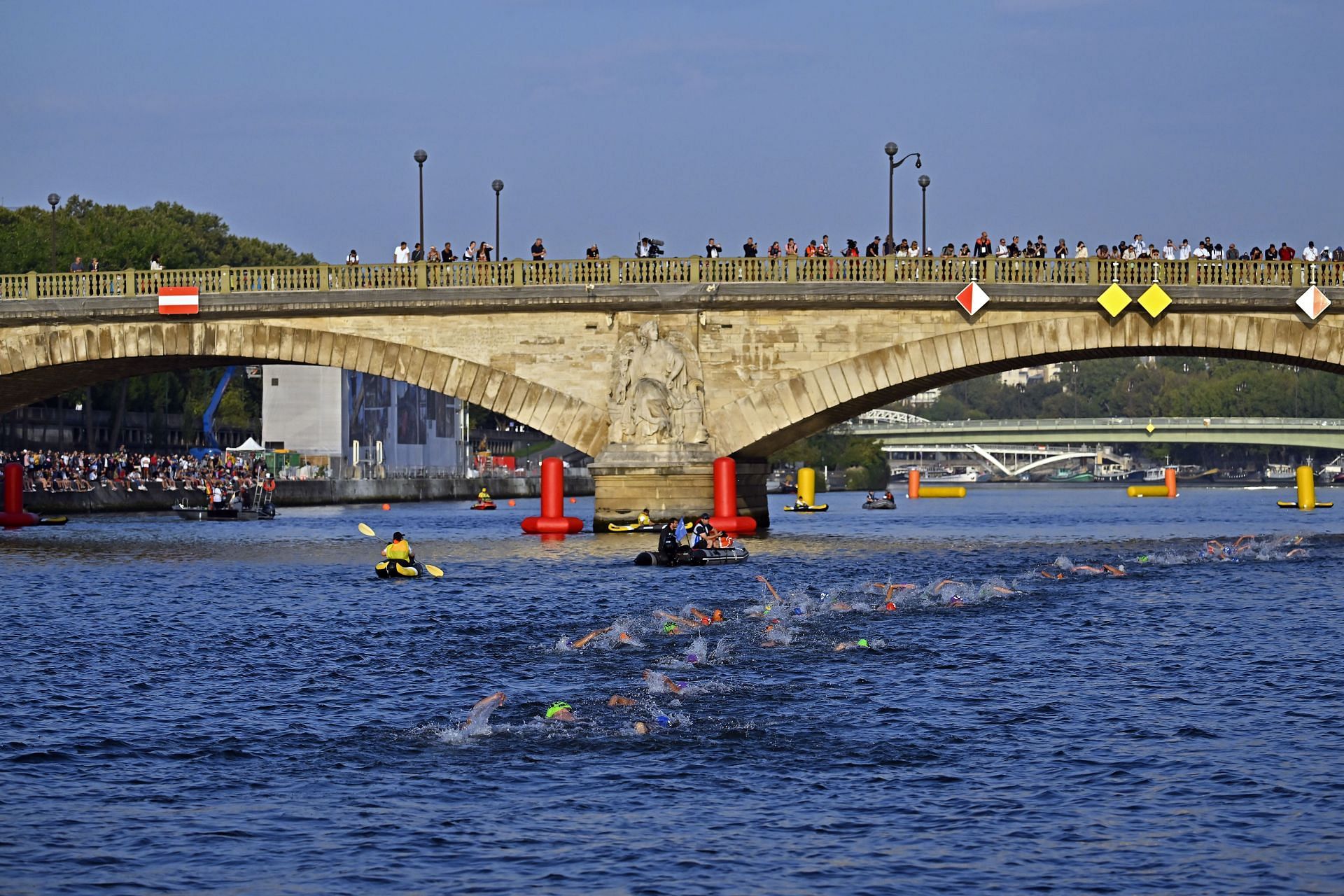
Paris opens huge water storage basin to clean River Seine for Olympic swimming
On May 2, Thursday, French officials inaugurated a giant water storage basin, which will help to clean up the River Seine, the venue for marathon swimming at Paris Olympics 2024 and the swimming leg of the Olympic and Paralympic triathlons.
Notably, the swimming test events at River Seine were canceled last year due to poor water quality. The main reason was heavy rains that overwhelmed the city’s aging sewer system, resulting in a combination of rainwater and untreated sewage entering the Seine, thereby failing to meet safety standards.
Sports minister Amélie Oudéa-Castéra hailed Paris’ ability “to provide athletes from all over the world with an exceptional setting on the Seine for their events.”
The vast reservoir dug next to Paris’ Austerlitz train station is designed to collect excess rainwater and prevent bacteria-laden wastewater from entering the Seine.
With a capacity equivalent to 20 Olympic swimming pools of contaminated water, this reservoir will now undergo treatment instead of being discharged directly into the river through storm drains.
“We are on time,” declared Marc Guillaume, the prefect of the Paris region.
“The beginning of the Games will coincide with water quality allowing competition. That’s a tremendous collective success,” he added.
Paris mayor Anne Hidalgo has pledged to personally swim in the Seine before the Olympics, potentially accompanied by President Emmanuel Macron. She emphasized that the new storage basin ensures water retention even during severe storms, facilitating a swift return to normal water levels.
According to Hidalgo, the new storage basin will ensure that water can be stored even during extreme storms, and will help water levels to return to normal quickly.
Water quality in River Seine to be assessed daily at 3 AM during Paris Olympics
The inauguration of the basin signifies the latest advancement toward a cleaner river and is part of a series of newly constructed facilities, including a water treatment plant in Champigny-sur-Marne, east of Paris, which was unveiled last month.
During the Paris Olympics 2024, water quality in the River Seine will be assessed daily at 3 AM to determine whether events can proceed as scheduled. Organizers have indicated that if results fail to meet standards, events could be postponed by a few days.
The estimated cost of these cleanup efforts totals 1.4 billion euros (USD 1.5 billion) financed by both state and local authorities.